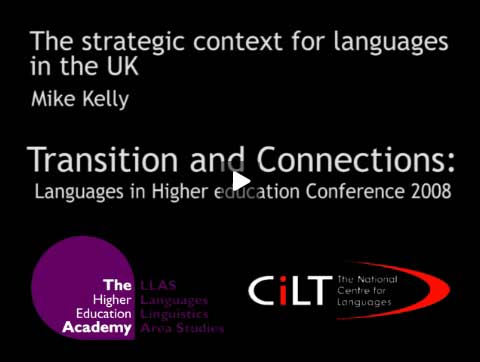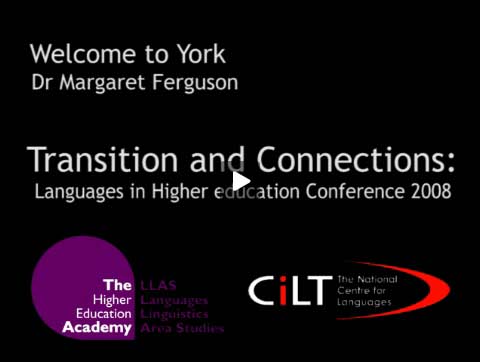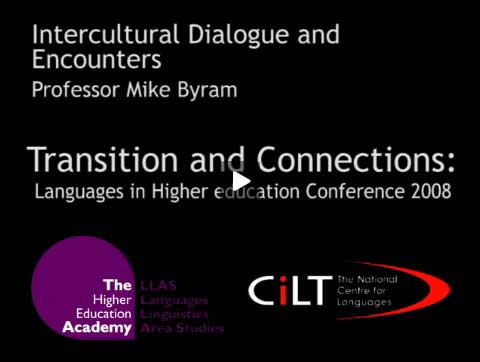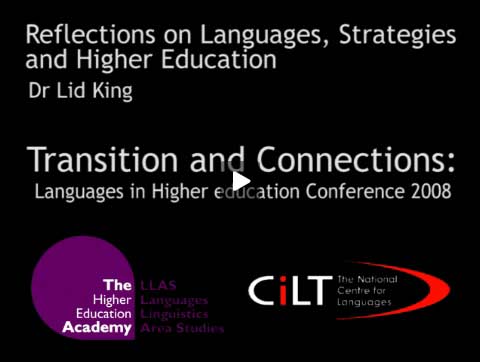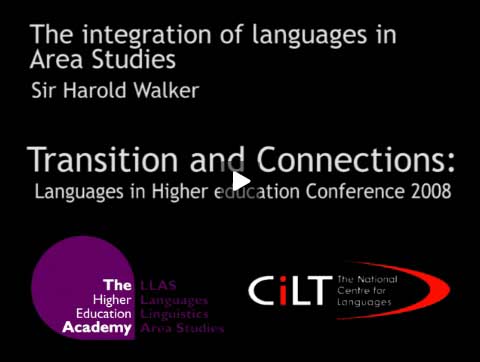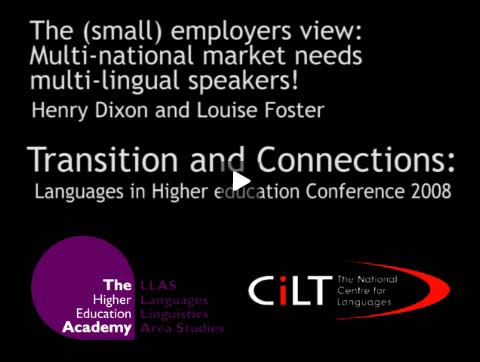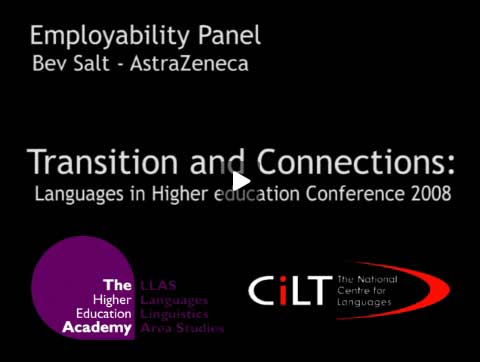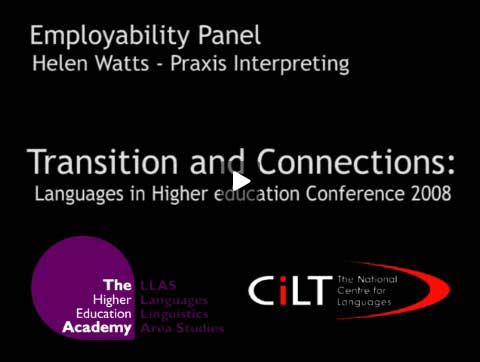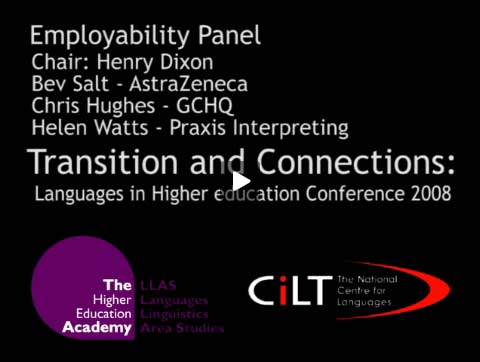Languages in higher education conference: transitions and connections
Date: 8 July, 2008 - 9 July, 2008
Location: University of York
Event type: Conference
The fourth biennial conference for languages in higher education, jointly organised by CILT, the National Centre for Languages and the Subject Centre for Languages, Linguistics and Area Studies
The next biennial Languages in Higher Education Conference will take place at the University of York on Tuesday 8th and Wednesday 9th July 2008. This two-day conference is jointly organised by the Subject Centre for Languages, Linguistics and Area Studies and CILT – the National Centre for Languages, in partnership with key subject associations in languages and related studies in higher education: UCML, SCHML, AULC, and Routes into Languages.
The conference will be of interest to all those concerned with the learning and teaching of languages in higher education both in the UK and internationally. It will also be of relevance to those involved in other sectors which border on higher education such as secondary schools, FE and adult education. It is also aimed at representatives of business, languages professions and any other employers who wish to develop closer links with education in the field of languages.
In 2006 HEFCE identified modern languages in its list of strategically important and vulnerable subjects (SIVS), which led to the release of significant funding to support the development of initiatives to promote and support languages across sectors, develop networks for the teaching of professional skills and engage in research. The Routes into Languages project is an example of a strategic approach to widening participation in language learning, promoting the role of languages in civic and economic regeneration and transforming language competence in the UK. It is supported and complemented by other initiatives to improve the language learning experience in higher education through the curriculum, engagement with employers, liaison with schools and colleges and pedagogic research. Thus this year’s conference will draw on this growing body of expertise and share experience, knowledge and ideas both within the higher education sector and at the interface between higher education and other sectors such as schools, colleges and business.
Previous conferences:
- 2006: Crossing frontiers: languages and the international dimension
- 2004: Navigating the new landscape for languages
- 2002: Setting the agenda for languages in higher education
Conference themes
Conference papers are arranged into the following blocks:
1. Working across sectors
- a. Transition between school and university
- b. Stimulating demand for language degrees
- c. Outreach activities
- d. Lifelong learning
- e. Qualifications and accreditation
- f. Widening participation
2. The curriculum
- a. Specialist degrees
- b. Intercultural communication
- c. Ab initio language learning
- d. Student mobility and the year abroad
- e. Less widely used less taught languages/community languages
- f. Assessment
- g. Applied languages/languages for the professions
3. The language learning environment
- a. Technology and innovation in teaching
- b. Copyright and digitisation
- c. Sharing resources – repositories, learning objects etc.
- d. Distance programmes/Supporting students abroad
- e. Collaborative teaching & learning
4. Languages and employment
- a. Engaging with employers
- b. The language professions
- c. Accreditation
- d. Employability
- e. Entrepreneurship
- f. Teacher training
- g. Staff development
Papers will be 20 minutes with 10 minutes for discussion. The working language of the conference will be English.
Programme
Download programme (pdf, 279Kb).
Conference papers
Plenary
Languages in Higher Education Conference 2008: transitions and connections
Author: Sir Harold Walker
Linguistics
Why teach French sociolinguistics?
Author: David Nott
Assessment & feedback
Student diversity and the assessment dilemma
Author: Jenny Lewin-Jones
Pedagogy
Reactivating lapsed language skills: an exploration of language memory
Author: Jill Llewellyn Williams
The Listening Log: exploiting listening opportunities beyond the classroom
Author: Jenny Kemp
Employability skills
Employability and Enquiry-Based Learning in Languages
Author: Catherine Franc and Julie Lawton
Integrating key work skills into an undergraduate language module: marketing and media in France
Author: Laetitia Vedrenne and Sally Wagstaffe
Engaging employers
Engaging with employers at the University of Liverpool
Author: Diane Appleton
Transition - Motivation
Keeping up the good work: the motivational profiles of students in secondary and higher education
Author: Ulrike Bavendiek
Engaging learners
The Language Café
Author: Paula Davis and Shoshannah Holdom
Interpreting (in the classroom)
Liaison interpreting as a teaching technique for Italian
Author: Maria Chiara La Sala
Interpreting in the teaching of undergraduates: at the interface of HE and business
Author: Eva Schumacher-Reid
Outreach & Partnership
Promoting the study of languages in the South East through school-university partnerships: the Aimhigher Kent and Medway Languages Project
Author: Matilde Gallardo
National Networks for Interpreting and Translation
The diversity of language services
Author: Svetlana Carsten
Intercultural
Autonomous acquisition of Italian culture within language learning: the experience of CAMILLE (Cultural Awareness Modules to Improve Language Learning Experience)
Author: Elena Polisca
Lancaster – Graz intercultural Web-based project: intercultural learning across the Net
Author: Birgit Smith







